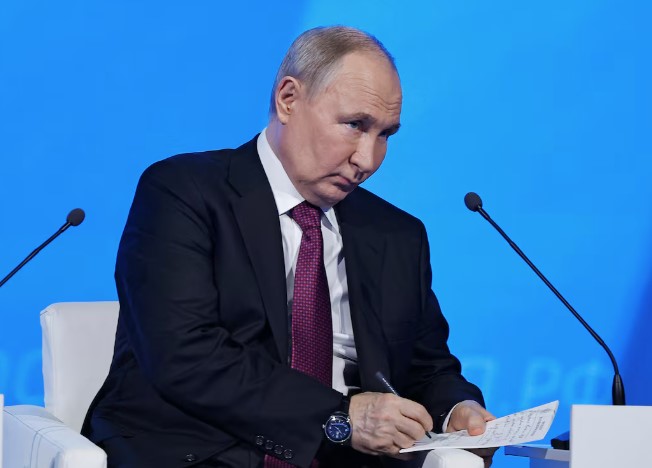Russia’s Plan to Expand Asset Seizures
The Russian government is preparing to take drastic action against foreign investors and companies from countries that have imposed sanctions on Moscow. A new law is in the works that will allow Russia to seize the assets of these investors as a response to Western financial restrictions. This move is part of Russia’s broader strategy to counter the economic impact of sanctions imposed due to its ongoing military actions in Ukraine.
The draft law, recently approved by a legislative commission, outlines the exact process by which Russia can confiscate foreign properties. It follows a decree issued in May 2024 that gave Russian authorities the power to identify and claim U.S. property and securities. These seizures are meant to compensate for the losses Russia has suffered due to Western asset freezes.
According to the new law, Russian authorities, including the central bank and the Prosecutor General’s Office, will be responsible for taking legal action against foreign investors. This means that Russian courts will have the power to approve asset seizures based on government claims of financial losses caused by Western sanctions.
One of the key concerns surrounding this development is the fate of C-type accounts. These are special accounts in Russian banks where funds belonging to foreign investors are held. These funds cannot be moved freely without the approval of Russian authorities. Under the proposed law, money in these accounts could be at risk of being taken by the Russian government. Many of these funds belong to large U.S. investment firms and individual investors, who could face significant financial losses if the law is enforced.
Why Russia is Taking This Step
Russia’s decision to expand its power over foreign assets is directly linked to the actions of Western nations, which have imposed heavy financial restrictions on Moscow. Since the beginning of the conflict in Ukraine, the U.S. and its European allies have taken steps to weaken Russia’s economy. One of the most significant measures has been the freezing of Russian assets held in foreign banks.
Currently, about $300 billion worth of Russian assets are frozen worldwide. However, only a small portion of this—roughly $3.2 billion per year—can be accessed in the form of profits. Western governments are now looking for ways to use these funds to provide financial support to Ukraine.
The Group of Seven (G7), which includes major economies like the U.S., the U.K., Germany, and Japan, has proposed using the profits from these frozen assets to help finance a $50 billion loan for Ukraine. As part of this plan, the European Union has pledged €20 billion ($20.6 billion), while the U.S. is set to contribute another $20 billion. Some U.S. officials have also suggested using these funds to buy weapons for Ukraine, further increasing tensions with Moscow.
Russia sees these actions as an attack on its economy and financial stability. In response, it is using its own legal system to target foreign companies and investors, particularly those from the countries enforcing sanctions. By doing so, Moscow hopes to recover some of its financial losses while also deterring future sanctions.
Impact on Foreign Investors and Companies
The proposed law could have serious consequences for businesses and investors from Western countries. Many international companies still have assets in Russia, including factories, offices, and financial investments. Under this new law, these assets could be seized without warning, leading to major losses.
C-type accounts, which hold billions of dollars in foreign investments, are particularly vulnerable. Many of these accounts belong to large U.S. investment firms that have funds trapped in Russia due to sanctions. If the Russian government decides to confiscate these assets, investors may have little recourse to recover their money.
For businesses that have not yet left Russia, this development adds another layer of uncertainty. Some foreign companies have continued operating in Russia despite the sanctions, but with the risk of asset seizures increasing, they may reconsider their position. Companies that have already left but still hold financial ties to Russia may also face difficulties in retrieving their funds.
This growing economic confrontation between Russia and the West is likely to continue affecting businesses, financial institutions, and investors caught in the middle. With both sides taking steps to tighten control over foreign assets, the global economic landscape is becoming more unpredictable.


